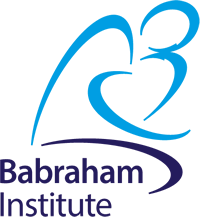Dr M Spivakov, Dr P Fraser
No more applications being accepted
Competition Funded PhD Project (European/UK Students Only)
About the Project
The Regulatory Genomics group at Babraham Institute (http://www.babraham.ac.uk/nuclear_dynamics/spivakov.html) is using bioinformatics to study how the input from transcription factors, chromatin structure and higher-order chromosomal interactions is integrated on the DNA to regulate gene expression. In contrast to the well-characterised amino acid code, the principles underlying the "code" at regulatory DNA sequences is still poorly understood. We have recently shown, for example, that regulatory regions may have a more flexible sequence organisation and tolerate more mutations than previously thought. At the same time, mutations at regulatory regions may lead to very serious abnormalities.
It is known that in addition to the linear organisation of regulatory modules, long-distance interactions between chromosomal regions "in 3D" play a vital role in gene regulation. The proposed PhD project will use a modification of the global Chromosome Conformation Capture technique to study the evolutionary properties of long-range chromosomal interactions in vertebrates. We will be particularly interested in how these correlate with conservation in sequence, transcription factor binding and gene expression. Performed in close partnership with experimental researchers at Dr Peter Fraser's group (http://www.babraham.ac.uk/nuclear_dynamics/fraser.html), this exciting interdisciplinary project will combine "wet-lab" and computational analyses. It is expected however that a larger proportion of this studentship will be dedicated to computational work.
Assuming some prior experience in computer programming and basic quantitative skills, this project will provide opportunities to acquire extensive expertise in global genomic analyses and master the general approaches of learning from 'big data' that are applicable across disciplines. As the focus will be on the biological question, some biological background is desirable, although a first degree in a biological subject is not essential and training in laboratory techniques will be provided. The successful applicant will join an international, multidisciplinary and interactive environment, with plenty of opportunities to both get support and grow as an independent researcher.
References
Junion G / Spivakov M et al., 2012. A transcription factor collective defines cardiac cell fate and reflects lineage history. Cell 148:473-486.
Spivakov M et al. 2012. Analysis of variation at transcription factor binding sites in Drosophila and humans (ENCODE project companion paper). Genome Biology, 13:R49.
Stadhouders R et al., 2012. Transcription regulation by distal enhancers: who's in the loop? Transcription 3:181-186.
Schoenfelder S / Sexton T / Chakalova L, … Fraser P, 2010. Preferential associations between co-regulated genes reveal a transcriptional interactome in erythroid cells. Nat Genet 42: 53-61.
Tanay A, Cavalli G. 2013. Chromosomal domains: epigenetic contexts and functional implications of genomic compartmentalisation. Curr Opin Genet Dev doi: 10.1016/j.gde.2012.12.009 [epub ahead of print].

 Continue with Facebook
Continue with Facebook

